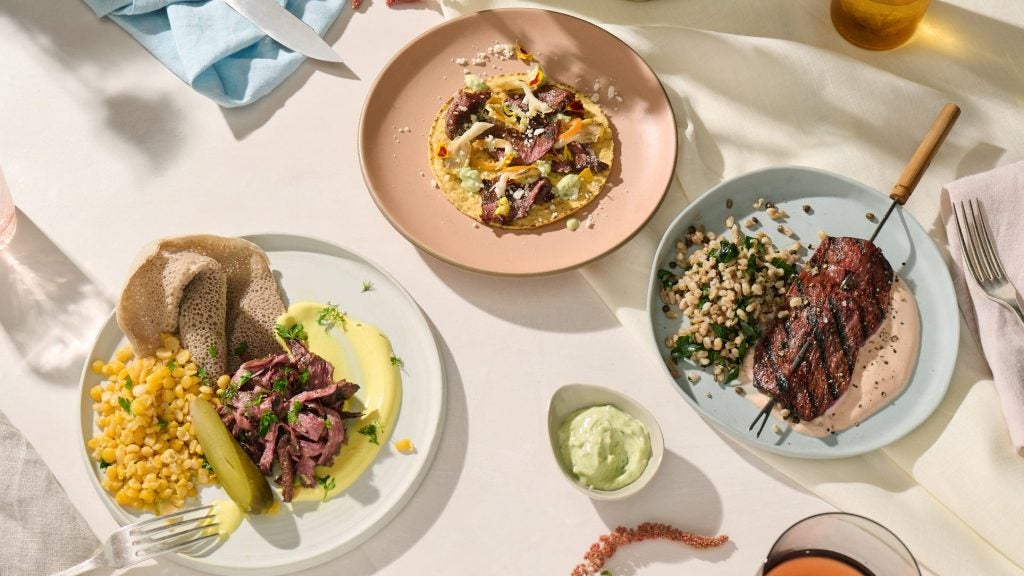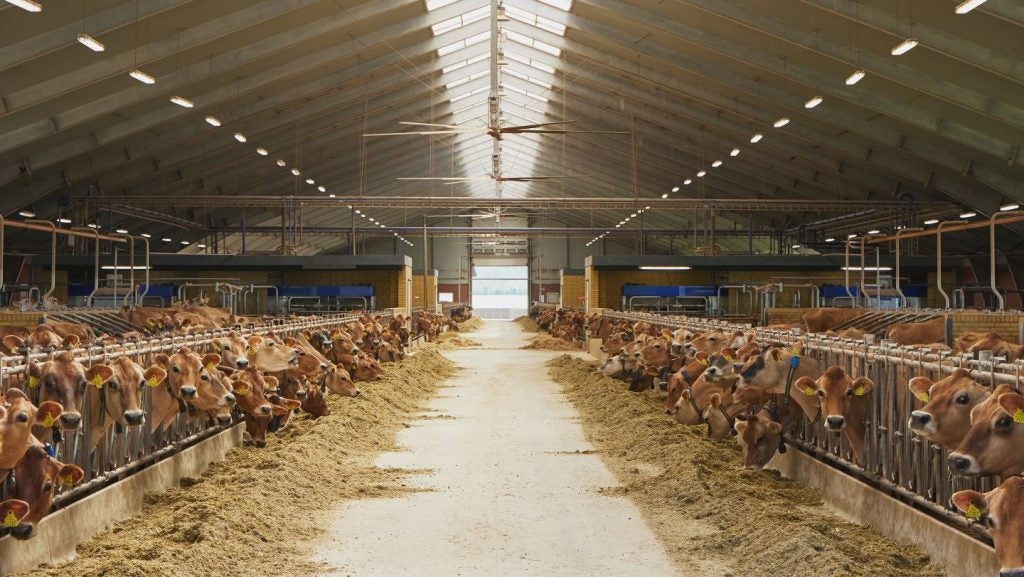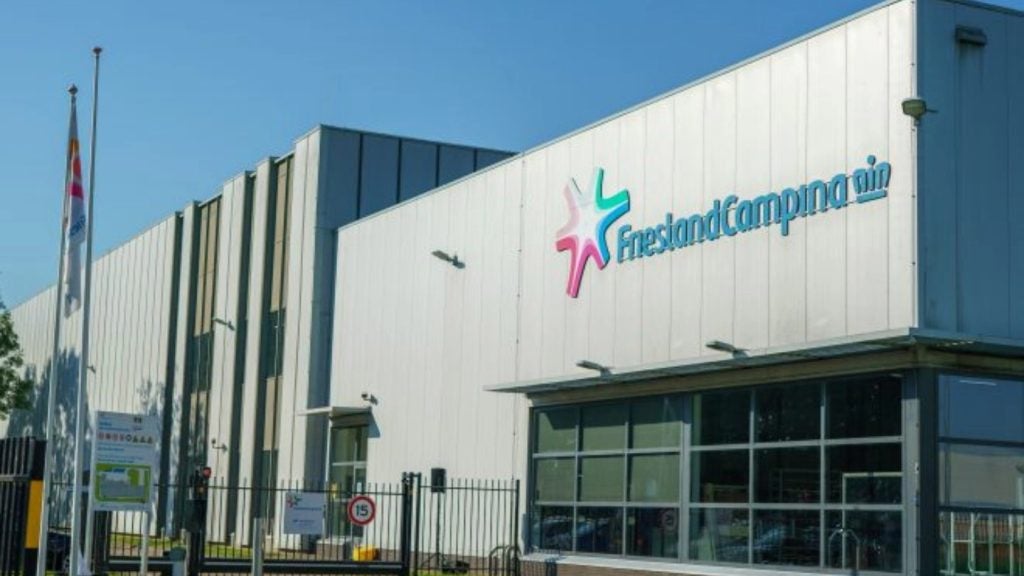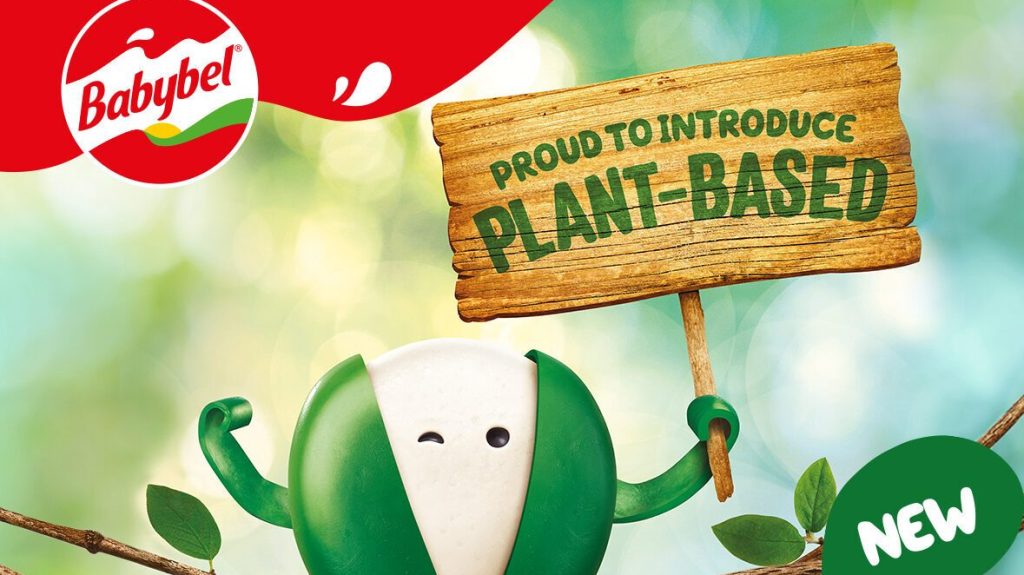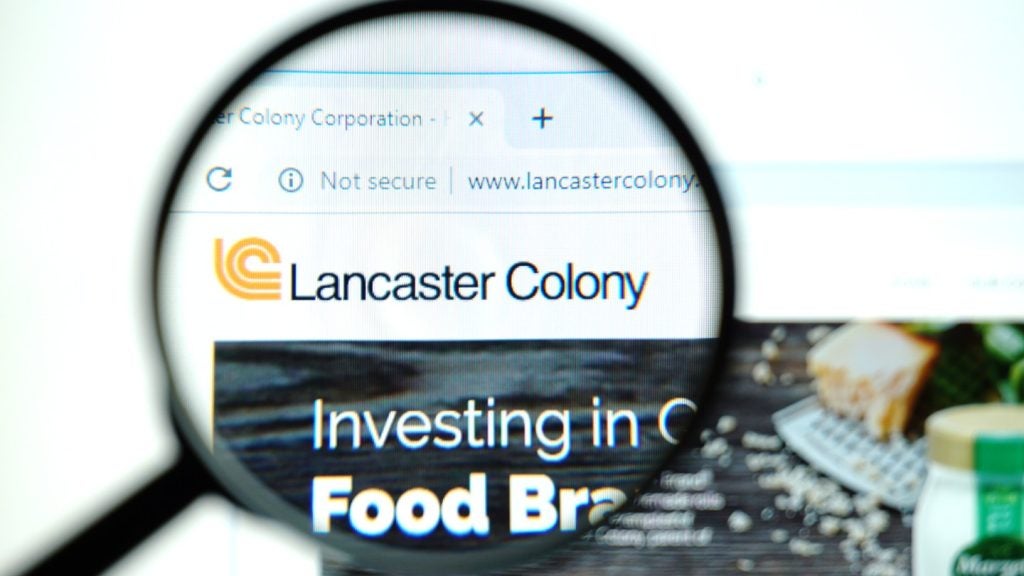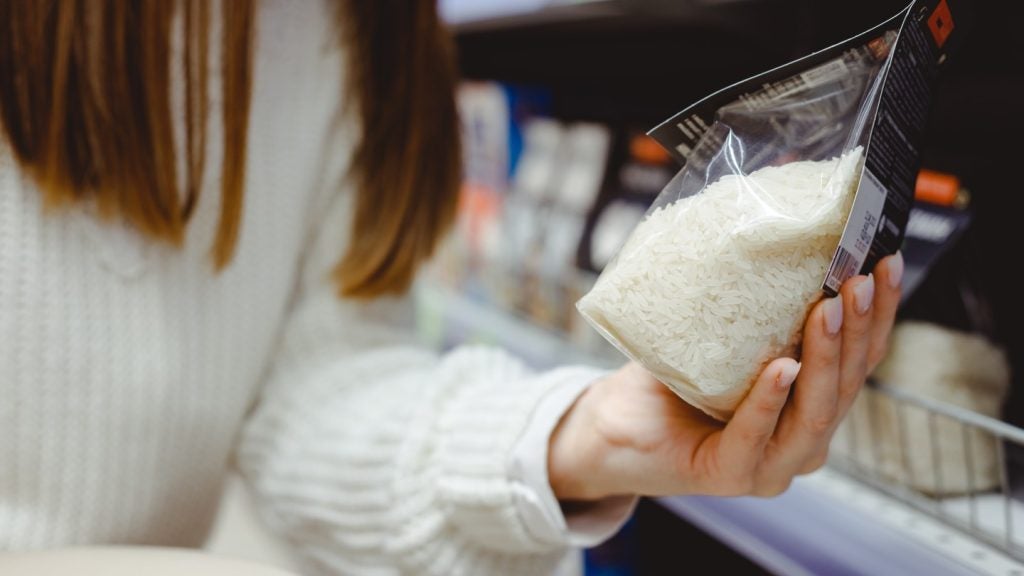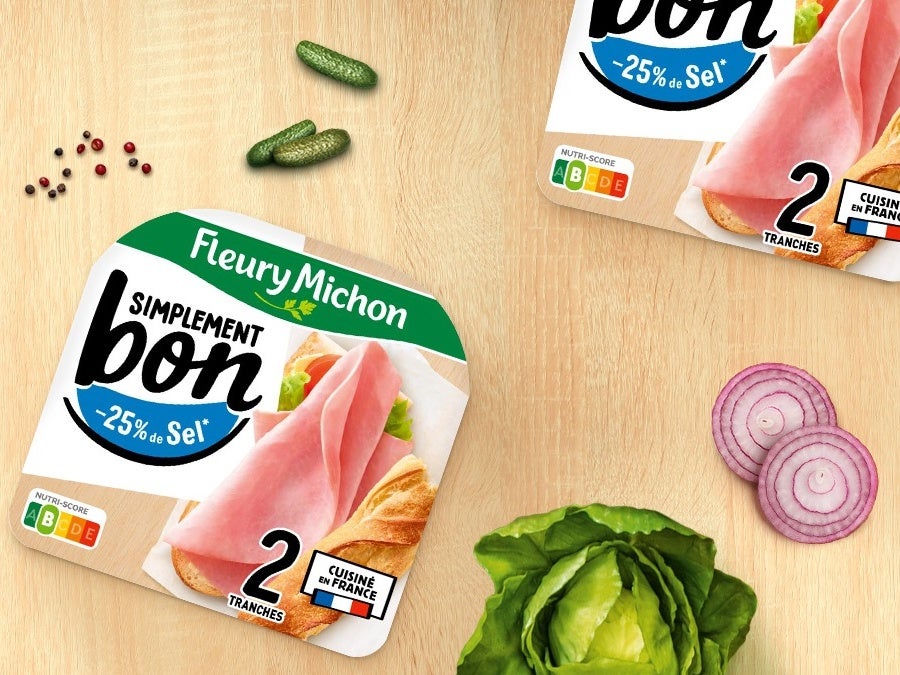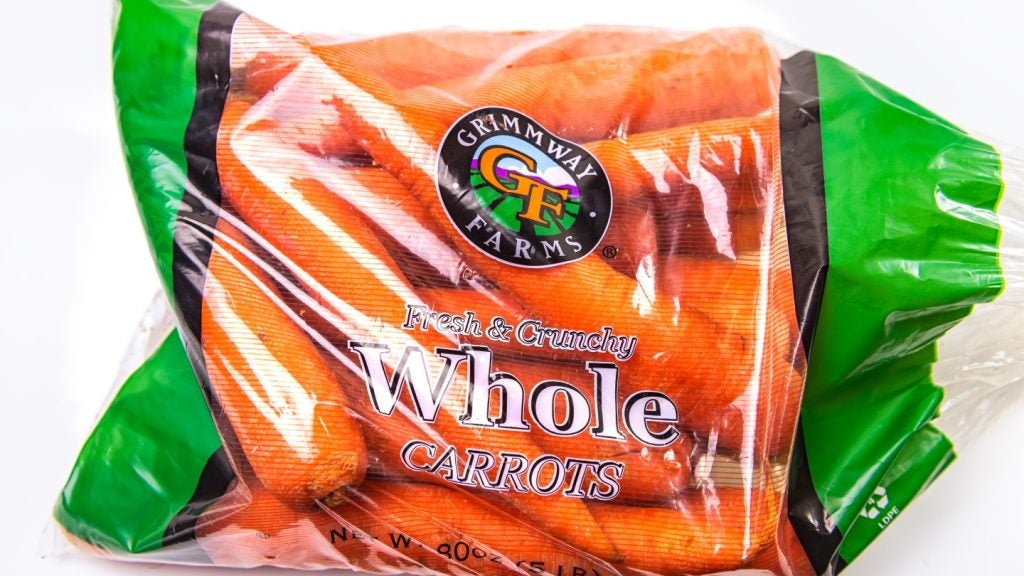The race is on to get cell-based protein products – meat, seafood, dairy and pet-food – on to supermarket shelves and into the hands of consumers.
Creating meat, fish. pet-food or dairy products in a lab using animal cells, with no physical harm coming to those animals, may be seen as the extreme end of food innovation. However, such is the progress in the field we may be seeing cell-based, or cultivated, products on our supermarket shelves within a couple of years, if not sooner.
To get there, the businesses behind these initiatives (detailed below), will have to speed up production, reduce costs, get regulatory approval and convince retailers and consumers cultivated produce is every bit as tasty and nutritional as that from slaughtered animals.
Inroads are being made in some of these areas. A number of cell-based protein companies have trialled products in taste tests with consumers or potential foodservice partners. Just two countries – Singapore and the US – have given the green light to sell cell-based commercially.
There has been a 'jam tomorrow' feeling about promises made by cell-based companies in recent years when having a product ready for consumers alwaays seeming to be a year or so away but, with developments such as that in Singapore, we appear to be approaching a point where theory becomes reality.
Were such a thing to happen on a meaningful scale, the effect could be revolutionary for the food industry and for the planet.
MEAT
Aleph Farms
Set up in 2017, Israel-based Aleph Farms has secured the backing of some major names in the industry.
A huge – $105m – Series B funding round in July 2021 saw Brazilian meat giant BRF and Thai seafood heavyweight Thai Union Group among those backing Israel's Aleph Farms. Its other investors include private-equity firm L. Catterton and Cargill.
The company is also working with Japan's Mitsubishi Corp. on product development.
In 2023, Aleph Farms submitted applications to sell its Aleph Cuts product in Switzerland and the UK.
At the start of 2024, the business received the first regulatory approval for producing and selling cultivated beef in the world.
Didier Toubia founded Aleph Farms with the Israeli innovation programme The Kitchen Hub run by the Strauss Group, a local food manufacturer of dairy products, snacks and dips, along with Shulamit Levenberg, a professor at research university Technion – Israel Institute of Technology.
In January 2024, Aleph Farms claimed to have received the first regulatory approval for producing and selling cultivated-beef in the world.
The company said it received a “no questions” letter for its cultivated-beef product, Petit Steak, from Israel’s Ministry of Health in December, “following a rigorous review process”.
Getting the green light will allow Aleph Farms to be the first producer and marketer of cultivated-meat in Israel and the Middle East.
In February 2024, it revealed it had partnered with two companies to set up a lab-grown production facility in Thailand.
Four months later, it was revealed Aleph Farms was to make a nearly a third of its workforce redundant. Some 30 employees, out of total of 100, were to lose their jobs.
In an interview with Just Food in September 2025, Toubia said the company was targeting "to reach EBITDA profitability" by the end of 2028.
In 2025, Aleph Farms signed an agreement with The Cultured Hub, a joint venture with Migros Industrie, Givaudan and Bühler Group, to set up its first European production base in Kemptthal, Zurich.
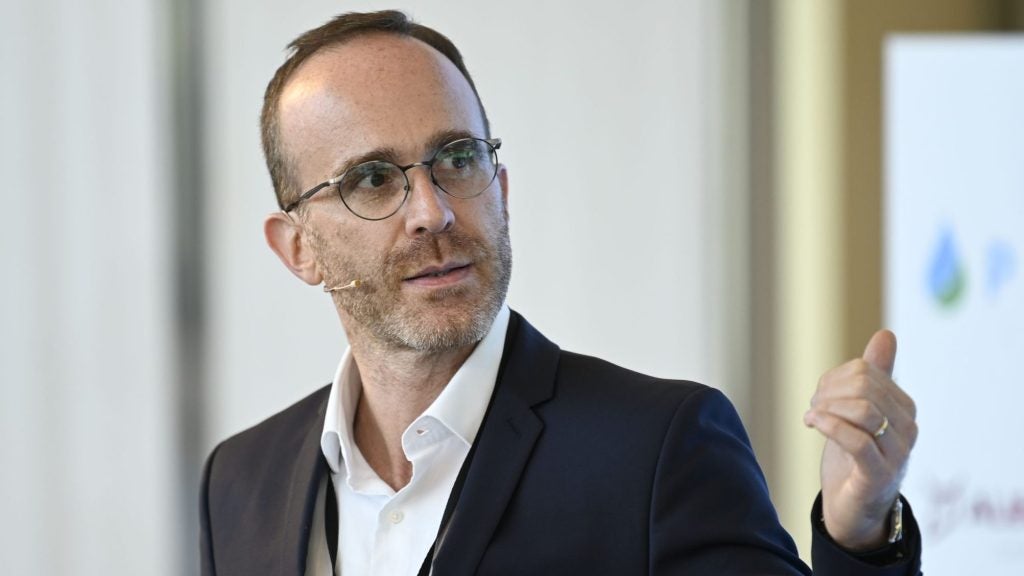
Upside Foods
Formerly known as Memphis Meats, under which guise the US company attracted investors including meat giant Tyson Foods, agri-food giant Cargill and businessmen Richard Branson and Bill Gates. The California-based firm changed its name to Upside Foods in 2021.
After receiving the green light from US regulator the FDA to sell its cell-based chicken in November 2022, the company secured approval from the USDA the following June and started sales in select restaurants.
Set up in 2015, the business’ earliest products were meatballs, chicken and duck. The company is also working on “certain marine species”, it told Just Food in 2022. The first food it plans to bring to the market is cell-cultivated chicken.
In 2017, the then Memphis Meats attracted investment from agri-food giant Cargill and, a year later, secured financial backing from Tyson Foods, the US meat major and world’s largest poultry producer. Tyson backed Upside Foods – which changed its name from Memphis Meats last year – again in 2020.
In January 2022, the company announced the acquisition of Wisconsin-based Cultured Decadence, a US peer focused on cultivated seafood (see below).
In March 2023, chief operating officer Amy Chen told Just Food in an interview "we are here to change the world".
In September 2023, it unveiled plans to build a "commercial scale" plant for cell-based meat.
In February 2024, it said it was pausing the development of a planned factory in Glenview, Illinois.
Thaat same month it announced it was ending its contract with Bar Crenn in San Francisco. It had been serving its cell-based chicken at the fine dining venue since JUly 2023.
In July 2024, Upside Foods revealed it was cutting an unspecified number of jobs.
It would not be drawn on the exact number of jobs lost, although US media reports put the count at 26. They also suggested the management team would be downsized.
Mosa Meat
Dutch cell-based protein business Mosa Meat can lay claims to being one of the elder statesmen of the cell-based protein movement having created the world’s first lab-cultivated beef hamburger back in 2013.
Perhaps as a result of that relative longevity and experience, it has attracted a lot of attention from investors, including Switzerland-based meat processor Bell Food Group, Nutreco, an animal nutrition and aquafeed specialist, and Jitse Groen, CEO of Just Eat Takeaway.com.
In early 2021, Mosa Meat announced it had raised another US$10m to complete an $85m Series B investment round.
The company said it will use the funds to extend a pilot production facility at its home in Maastricht, develop an industrial-sized production line and expand its team.
In 2024, Mosa Meat announced it had raised €40m ($42.5m) in funding from a mixture of new and existing investors.
The round saw contributions from several new investors, including VTEC Ingredients, an alternative protein ingredients business in which German poultry major PHW-Gruppe owns a majority stake.
In the last weeks of 2025, Mosa Meat said it had raised another €15m. Backing was secured from secured from existing and local impact investors Invest-NL and Liof, along with Germany’s PHW Group and Jitse Groen, the founder and CEO of the Just Eat takeaway platform.
“This fresh financing solidifies Mosa Meat’s outlook for the coming years, supporting the company’s next phase of regulatory market approvals and first significant revenue generation,” it said in a statement.
The news came days after it was announced Dutch peer Meatable was winding down.
Meatable’s key backer revealed the Dutch business had ceased trading, citing the failure to raise new funds.
Long-term investor, London-listed Agronomics, said the Meatable board and its shareholders had “resolved to dissolve the legal entity and its related group companies and to terminate all operating activities”.
Israel-based peer Believer Meats took a similar course of action earlier in December.
Eat Just/Good Meat
US-based Eat Just, formerly just Just and before that Hampton Creek, can make a claim to have beaten everyone to the punch.
Although best-known for its-faux egg products, in December 2020 Eat Just revealed Singapore - which is actively backing the development of cell-based meat - had given its seal of approval for cultivated-meat products made by the Californian firm founded by entrepreneur Josh Tetrick.
In what was believed to be the world’s first regulatory approval for cell-based meat, the south-east Asian city-state’s regulator, the Singapore Food Agency (SFA), approved the sale of Eat Just's hybrid “chicken bites” in a local restaurant. The products were sold commercially for the first time on 19 December.
The cells for its product are grown in a 1,200-litre bioreactor and then combined with plant-based ingredients.
In August 2021, Eat Just announced plans to build a cultivated-meat facility in Qatar. It claimed the plant, located in the Umm Alhoul Free Zone, is “the first-ever cultivated meat facility in the Middle East and Northern Africa (MENA) region”. The site will produce Eat Just’s Good Meat brand, with future plans to add a protein processing factory for its Just Egg products.
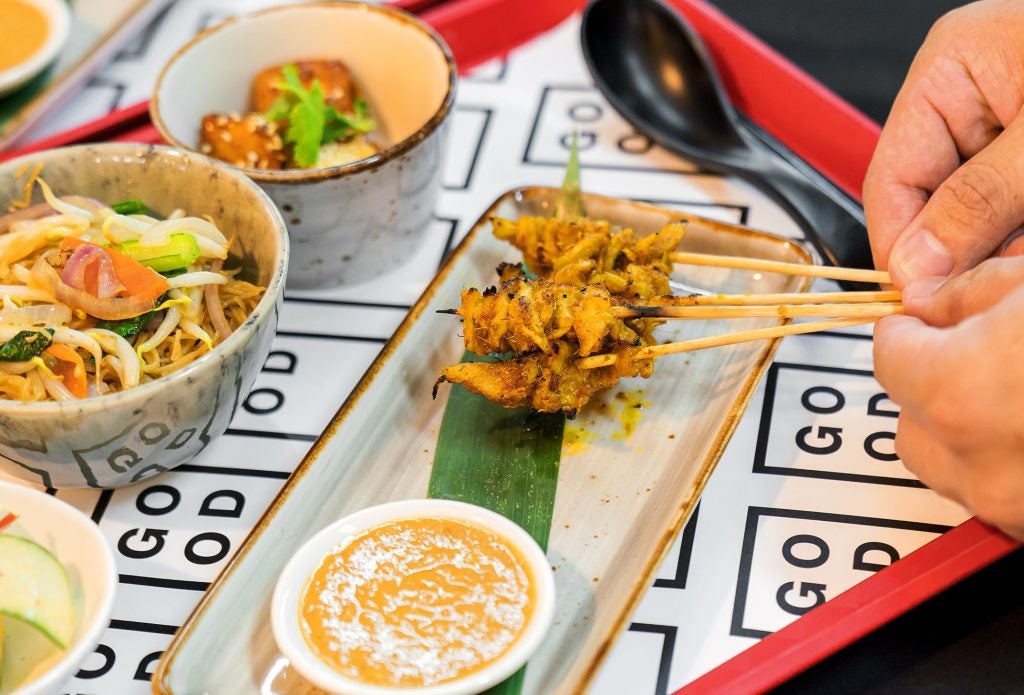
In March 2023, Eat Just became the second company – after Upside Foods – to get the US FDA green light for cell-based meat. Three months later, the company’s Good Meat arm secured USDA approval and, like Upside Foods, began selling into US restaurants.
In December 2023, founder Tetrick told Just Food in an interview that scaling-up was a "massive challenge".
In March 2024, the company explained a pause in production of cell-based chicken for Huber's Bistro in Singapore by saying it was preparing for a new phase in selling to retail.
And, in May 2024, Eat Just claimed a world first when it gained a retail listing for a cell-based product in Huber's butcher's shop in Singapore. Its Good Meat 3 product contains 3% cultivated-chicken.
Gourmey
Planning to offer something different to cell-based steaks, burgers and sausages is France's Gourmey, which is cultivating the delicacy foie gras in a lab.
It will also be creating lab-grown poultry products.
In July 2021, the Paris business bagged US$10m in seed funding and said it planned to scale up production and expected to launch commercially in 2022 or early in 2023.
Founded in 2019 by chief executive Nicolas Morin-Forest, technology officer Dr Victor Sayous and chief scientific officer Antoine Davydoff, Gourmey describes the products it is developing as “restaurant-grade meats”.
Morin-Forest said in a statement at the time the funding was announced: “Our mission is to re-imagine meat for our uncompromising and conscious generation so that we have a chance to feed ten billion people without devastating our environment.”
“We focus on cultivated meats that we can deliver at price and taste parity faster, which is the main challenge for the industry.”
Market-watchers will be interested to see if creating foie gras in a lab can end the cruelties inherent within the production process at the moment, notably the fattening of a goose's liver. They will also be keen to see if foie gras-eating gourmets will take to something made in a lab.
In October 2022, it secured funding to build a 46,000-square-foot plant in Paris to produce lab-grown foie gras.
The company raised $48m for the new building, which will house commercial production and research and development operations.
“We are getting to the production and commercialisation stage,” co-founder Nicolas Morin-Forest said in an interview
The funding round was led by Earlybird Venture Capital, with backing from Keen Venture Partners and Instacart CEO Fidji Simo,
In July 2024, Gourmey revealed it had applied to sell its flagship product in the EU, as well as four other markets.
The company requested approval to sell its cultivated duck product, which Gourmey said is an alternative to foie gras, in the UK, the US, Singapore and Switzerland as well.
Paris-based Gourmey said it was the first to request “novel food approval for cultivated foods” in the EU.
In October 2025, the company acquired cultivated-meat peer VitalMeat to form a new business in France called Parima.
IntegriCulture
There must be a perceived demand for such a product, though, as Japan's IntegriCulture is also looking to make foie gras in a lab, as well as other meat products.
In May 2020, it was backed in a US$7.4m Series A funding round by a consortium including Japan's NH Foods and investment company Beyond Next Ventures.
IntegriCulture said it would use the investment for research and development in cell-culture technology, facilities and equipment, staffing and operational costs.
The company explained its key aims were to bring cell-based foie gras to market next year (2021) and processed meat in 2023. It said it hoped to then start marketing cell-based beef in 2025.
In January 2022, IntegriCulture raised $7m from 12 investors in a Series A funding round, taking the total amount of funds raised to approximately $16.4m.
Investors included Real Tech Fund and Beyond Next Ventures.
Ivy Farm Technologies
Ivy Farm Technologies, from the UK, revealed in June 2021 that it was targeting a second round of funding despite the fact it was just closing a GBP16m (US$22.6m) round.
The business, a spin-out from Oxford University, said the funding would facilitate additional research and development and help it near-double the size of its team from 29 to 50 before year-end.
Chief executive Rich Dillon, the former head of global sales at energy drink company Red Bull, told Just Food: “We are only weeks away from closing the funding round. The response has been very positive and we’ve got some great investors on board.
“We’re now looking forward to a Series A round at the end of the year.”
Ivy Farm was about to move into larger premises in Oxford, which will house “leading-edge equipment” and a bioreactor to help it scale up its manufacturing process which was proven with the production of a Cumberland sausage in December.
The next round of funding will pay for a “full-blown” pilot facility, which the company hopes will help it reach its goals of becoming the first British commercial producer of cultured meat.
Ivy Farm said it has developed a “unique” scaffold system to grow cells in a more efficient, faster and cheaper way than its rivals. It uses a plant-based growth medium.
The business was founded by Oxford University’s Dr Russ Tucker and Professor Cathy Ye in 2019.
In March 2024, Ivy Farm said it had struck a partnership with bio-tech investor BSF Enterprises which will result in it producing cell-based meat in China.
Biotech Foods
Spain showed it had got skin in the cell-based protein game in January 2021 when the country part-funded a project in the country set up to develop cell-cultured meat products.
Biotech Foods, a firm based in San Sebastián in the north west of the country, is leading the scheme, which has attracted EUR3.7m (US$4.5m at the prevailing exchange rate) of government funding.
The company, developing alternatives to beef and pork, is the only cell-based firm involved in the project, in which Spanish meat processors Argal and Martínez Somalo are also taking part.
Iñigo Charola, Biotech Foods' CEO, said the company had started pilot production but, asked when the company was hoping to launch its first product, he would only say: "We are working to bring our products to the market in the near term”.
He added: “Based on the successful launch of cultivated meat in Singapore we think cultivated meat will be part of our diets in many other countries sooner than expected."
Charola went on: “BioTech Foods aims to commercialise its products globally. Product launch is our main priority at this moment and, as in most cases in the cultivated-meat industry, regulation and industrial scale production are the key challenges."
In November 2021, it was announced that Brazilian meat giant JBS had taken a stake in BioTech and would be putting money into the development of its facilities.
JBS announced in September 2023 that it had started construction work on an R&D site that will develop cell-based protein, marking its latest investment in the early-stage industry.
JBS said the facility will work towards making the production of cultured protein “more efficient, scalable and economically competitive”.
The Biotech Innovation Centre will be located in the Sapiens Parque innovation park in Florianópolis in south-eastern Brazil. Scheduled to open towards the end of 2024, it will be the country’s largest food biotechnology research centre.
Mirai
Creating lab-based beef is Switzerland's Mirai, which raised US$2.4m in a seed funding round in January 2021.
Amongst its backers was Finland-based food-and-beverage company Paulig Group.
Marai said it would use the money to prepare for the commercialisation of its cultivated beef product.
Zurich-based Mirai, founded in 2019, suggests it is one of the few companies operating in this field that does not genetically manipulate the animal cells it uses to create meat products, which it predicts will be an important distinction for Europe-based consumers.
Speaking about the funding round, Christoph Mayr, Mirai co-founder and CEO, said: “We are proud to have such a strong and diverse pool of investors aboard for this journey.”
Marika King, head of Paulig's venture arm PINC, said: "Mirai Foods is a second-generation player in this field and they have been extremely fast. It only took them six months to develop the first prototype and we are very excited to be part of this team's journey.”
SuperMeat
Amongst the first generation of cell-based protein firms is Israel's SuperMeat.
Back in January 2018, it announced it had formed a strategic alliance with German poultry giant PHW-Gruppe which would help bring its “clean-chicken products” to market.
Based in Tel-Aviv, SuperMeat produces “clean meat” by growing cells extracted from chickens.
It attracted US$3m in seed funding in early 2018 and said at the time: “This process puts an end to the industrial need to mass-produce animals for slaughter, while eliminating exposure to animal waste and food-borne illnesses; the potential benefits for public health and animal welfare are therefore considerable.
“At the same time, clean meat is also highly beneficial for the environment, with drastically reduced carbon and ecological footprints compared to current meat production methods.”
US-based venture capital fund New Crop Capital and “mission-orientated” Stray Dog Capital led the round of funding.
Co-founder and chief executive Ido Savir said at the time: “We’re proud that SuperMeat is at the forefront of the rapidly-evolving clean-meat industry.”
After securing the funding, SuperMeat said it hoped to bring the product to market in the “very near future” and at a price similar to conventional chicken products.
In July 2022, SuperMeat announced a Memorandum of Understanding (MOU) with Switzerland’s largest retail supermarket chain and meat manufacturer, Migros. The MOU was intended to "expedite the production and distribution of cultivated meat on a commercial scale".
As part of the partnership, Migros invested in SuperMeat.
The two companies said they "aim to solidify an infrastructure to distribute and sell cultivated meat on a wide scale to meet the demand of the European consumer looking for more efficient and sustainable alternative products."
Clever Carnivore
In December 2023, Clever Carnivore, a US-based cultivated-meat business, raised $7m in a funding round.
It planned to use the money to expand its operation and scale-up the production of its meat, grown in a lab from animal cells.
Clever Carnivore is currently producing cultivated pork sausage, with plans to unveil its prototype product, the Clever Bratwurst, in early 2024.
The oversubscribed seed funding round was led by New York- and Hong Kong-based Lever VC, which has a focus on the alternative-protein industry. International investors included McWin Capital Partners from Spain, Thia Ventures, headquartered in Belgium and Switzerland, and Newfund Capital from France.
Domestic backers of the Chicago bio-tech start-up included Valo Ventures from California and Stray Dog Capital, a Midwest-based fund.
SEAFOOD
BlueNalu
In January 2021, US cell-based seafood firm BlueNalu was another start-up to attract the backing of a major name in food when it was revealed it Thailand-based seafood giant Thai Union had invested in the business.
The John West brand owner was among a number of new backers for the fledgling California-based firm which said it was looking to launch its first product later this year.
Thiraphong Chansiri, Thai Union’s president and CEO, said, “BlueNalu and its experienced team is at the forefront of cell-based seafood technology, with strong process capabilities to scale-up seafood in a sustainable manner. We are excited to work with them and look forward to exploring collaboration opportunities.”
BlueNalu, which has raised US$84.5m across seed and Series A financing, said the fresh investment would be used to it complete its pilot production facility and secure regulatory approval to launch its first product on a test basis in US foodservice establishments. The company said it was aiming to get a mahi mahi product on menus later in 2021 and was confident it would get regulatory approval for the move.
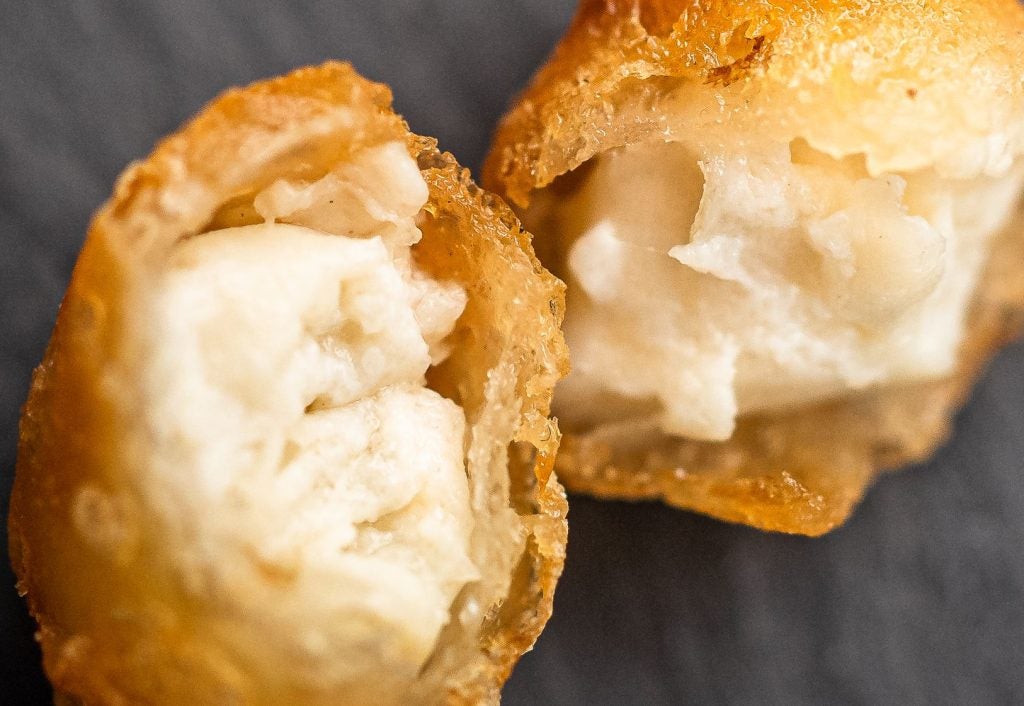
In an interview with Just Food in 2020, BlueNalu CEO and co-founder Lou Cooperhouse – a food industry veteran – described cell-based seafood as “the Holy Grail of the Holy Grail”.
In September 2021, the company announced it would start working with Nomad Foods, one of the largest suppliers of conventional seafood in Europe, to explore the potential of cell-based products in that region.
In 2025, BlueNalu said it had expanded its partnership with Nomad to take its products to market in the UK and Europe.
The companies said they would be focusing on market-entry strategies in the UK, starting with “premium foodservice and limited-time offerings that align with consumer demand for high-quality seafood options”.
Shiok Meats
Singapore's Shiok Meats suggests its first product - cell-based shrimp - will be brought to market in 2022.
In September 2020, it revealed plans to build its first manufacturing plant on the back of a new round of funding.
The fledgling business secured US$12.6m in a Series A investment round from a group of investors spread across Asia, Europe and the US, building on $4.6m of seed funding in 2019.
Netherlands-based investment fund Aqua-Spark, which is focused on sustainable aquaculture, led the round, with participation from 12 other investors.
Chief executive Dr. Sandhya Sriram, who founded Shiok Meats with its chief technology officer Dr. Ka Yi Ling in 2018, said: “The investors in this round, from all over the world, are all aligned towards one mission - sustainable, healthy, and delicious seafood for everyone.
“Our mission is to develop cell-based seafood and meats that are contributing towards a cleaner and healthier seafood industry and solving for the inefficiencies around global protein production.”
In July 2021, Shiok Meats announced new investment from South Korean food company CJ CheilJedang - which has invested in Aleph Farms earlier in the year - and from Vietnam seafood processor Vinh Hoan Corp., which was a backer of Hong Kong cell-seafood start-up Avant Meats.
Beyond the launch of frozen cell-based shrimp, Shiok Meats is planning to develop shrimp paste, a popular food ingredient in Asia, and cell-based lobster and crab products in “the coming years”.
In August 2021, Shiok announced that it was moving into cell-based meat with the acquisition of south-east Asian cultivated red meat start-up Gaia Foods.
In March 2024, Shiok Meats and Umami Bioworks announced plans to merge as a way to edge closer to commercialisation.
Avant Meats
Set up in 2018 to develop cell-cultured seafood, Avant Meats secured seed funding in November 2020 of more than US$3m, which included alternative-protein investment fund Lever VC and Markus Haefeli, the chairman of tilapia fish producer Regal Springs.
Avants Meats, headed by Carrie Chan, is focusing on being a business-to-business supplier of cell-cultured seafood. Chan sold a stake in the company to Vinh Hoan Corp., the Vietnam-based seafood processor in early 2021.
Interview: Flourishing in food – four female founders share their start-up stories
Cultured Decadence
In April 2021, US cell-seafood start-up Cultured Decadence raised US$1.6m from a pre-seed round, It said it planned to put the money to work in developing cell-cultured lobster as it moves toward a commercial launch.
John Pattison, the firm’s CEO who has previously worked for US cell-based meat company New Age Meats, founded the business with chief scientific officer Ian Johnson in 2019 having come up with the idea to create sustainable seafood products with a “dramatically lower” environmental footprint.
Using its own technology, Cultured Decadence is developing seafood ‘meat’ using the cells of lobster in the first instance, with potential expansion into other shellfish such as crab, shrimp and scallops.
A spokesperson for the Madison, Wisconsin-based company, told just-food it does not yet have a manufacturing facility as the business is still at the R&D stage, adding: “We are currently building out our technology at bench scale and would look to pilot/commercialise in the next few years”.
Contributors to the pre-seed round included Chicago-based venture-capital fund Bluestein Ventures and peer Joyance Partners in San Francisco, along with Chinese investment firm Dao Foods.
In January 2022, the company announced its sale to Upside Foods, the US-based developer of cell-cultivated meat and seafood products.
Wildtype
In February 2022, the San Francisco-based firm, which is initially focusing its efforts on cell-cultivated salmon, raised what it says is the “largest investment round in the cultivated seafood industry worldwide”.
Wildtype attracted US$100m in a Series B funding round, led by private-equity firm L Catterton. US agribusiness giant Cargill was also among the investors who participated, alongside other backers that included Singapore state vehicle Temasek and Bezos Expeditions, the family office of Amazon founder Jeff Bezos.
Later in the year, SK Inc., the investment arm of South Korea-based conglomerate SK Group, announced it had invested $7bn in Wildtype.
Announcing the funding, SK Inc. said Wildtype was “working towards launching commercial products like salmon steak and fillet in 2023”.
SK Inc.’s other investments in alternative protein include financial backing for animal-free dairy business Perfect Dairy, plant-based business The Meatless Farm and Nature’s Fynd, a US firm making meat and dairy alternatives through microbial fermentation.
Forsea Foods
In January 2024, Israel's Forsea Foods developed the first prototype of cultivated eel (Unagi).
Forsea said it has high hopes for its product’s future, seeking partners in Japan - where there is strong demand for Unagi - and across Asia, where it hopes to launch commercially in 2025.
Finless Foods
In March 2022, Finless Foods, a US company developing plant- and cell-based seafood alternatives, secured funds to expand domestically and explore a launch in Asia.
The California-based business, set up in 2016, has raised US$34m in Series B funds.
Japanese conventional seafood supplier Dainichi Corp. invested in the US business after participating in Finless Foods’ Series A funding. To date, the firm had raised close to $48m.
“Dainichi has been a close partner of Finless Foods even before their investment in our Series A. They have been strategically supporting the team since 2018 in our cellular biology R&D as well as strategy for the Japanese market. The goal of Dainichi being a partner and investor in Finless is to open channels of communication to the Japanese market,” Finless Foods told Just Food.
Bluu Seafood
In March 2021, the Berlin-based start-up, which claimed to be Europe's first company specialising in cell-based fish, closed a round of seed funding.
Then known as Bluu Biosciences, it said it was looking to having its first prototype ready by the end of 2022.
CPT Capital, the investment arm of the family office of UK businessman Jeremy Coller, and Lever VC, an investor in start-ups offering alternatives to meat, dairy and seafood protein, were among the participants in the round, which raised EUR7m (US$8.2m).
In June 2023, it raised a further €16m ($17.47m) in Series A funding and said it planned to launch in Singapore in 2024.
The food bio-tech company had now raised more than €23m since its inception.
The funding this time around was led by investment fund Sparkfood.
Umami Bioworks
In August 2023, Maruha Nichiro, the world’s biggest seafood company, invested in Singapore-based cultivated-seafood start-up Umami Bioworks.
Umami, formed in 2020 as Umami Meats, says it uses machine learning to create “the operating system” for cell-cultivated seafood.
Singapore-based Umami Bioworks, formed in 2020 as Umami Meats, says it uses machine learning to create “the operating system” for cell-cultivated seafood, including cell lines and growth media.
Japan's Maruha Nichiro will work with the B2B company in areas like cell development as part of efforts to develop and commercialise cell-cultivated seafood.
The terms of its investment were not disclosed.
In February 2024, it was revealed that Umami was working with Canadian pet-food business Cult Food Science.
Cult CEO CEO Mitchell Scott said: “We are also working with Umami Bioworks from Singapore. We are shipping from Singapore and have a co-packer in the US. We are looking at creating a pilot facility in Boston with Umami.
“The first product will be Marina Cat, a cultured-snapper product. We’re really excited to have a product that can be tasted and tested and hope that will generate additional interest and investment.”
In March 2024, Shiok Meats and Umami Bioworks announced plans to merge as a way to edge closer to commercialisation.
In July 2024, Umami inked a deal with US firm Friends & Family Pet Food Co. (FnF) to create lab-grown fish treats for cats.
Claiming a world first for such a product, Umami said the treats will be showcased at the end of this year before being launched in Singapore and California, where FnF. is based, in early 2025.
It said it is “actively in discussions” with regulators in the two target markets.
DAIRY
TurtleTree Labs
Singapore's TurtleTree Labs announced a new round of funding in December 2020 which it said would help it accelerate its plans to launch another type of cell-based protein - milk.
It was backed, to the tune of US$6.2m, by a consortium including existing investors Eat Beyond Global Holdings from Canada, US asset management firm KBW Ventures and Green Monday Ventures, the investment arm of plant-based food supplier Green Monday Group in Hong Kong. Verso Capital, a Luxembourg-headquartered investor, also took part in the funding round.
The Series A funding added to a previous $3.2m seed injection in June 2020.
TurtleTree said it planned to use the new funds for R&D and to expand its team as the company works with regulators to bring its debut product to market next year (2021).
The company claims to be the world’s first company using technology to create cell-cultured milk from animal cells. It was founded by chief executive Fengru Lin, chief scientific officer Rabail Toor, and chief strategist Max Rye.
Rye said in a statement at the time of its latest funding announcement: “The vision of TurtleTree Labs is to create a truly sustainable and cruelty-free food system. We are grateful to have the support of leading investors from every corner of the world.”
In November 2021, TurtleTree raised $30m in a Series A funding round, one of the largest investment rounds to date in Asia's cell-based food sector to date. The lead investor was Verso Capital.
CEO Fengru Lin said: "We are incredibly touched by the degree of faith all our investors have placed in TurtleTree and our unique vision of food."
Biomilq
Biomilq, a fledgling US firm producing cell-cultured breastmilk, has attracted funding from big-name backers including an investor consortium that features Microsoft founder Bill Gates and Amazon's Jeff Bezos, who happens to be the richest man on the planet.
The company, based in North Carolina, raised US$3.5m in its last funding round in June 2020, money it said would be used to “optimise” production, expand its team and work with families to paediatricians to bring its product to market.
Biomilq says it cultures mammary cells outside the body and, after producing human casein and lactose, believes it “can fully replicate the nutritional profile of breastmilk”.
Michelle Egger, co-founder and CEO of Biomilq, said: “While there is no replacement for breastmilk, we believe we can harness the power of science, technology, and nature to deliver comprehensive and sustainable infant nutrition.”
Wilk
Israel-based Wilk, which launched in 2020, produces cultured human breast milk and animal milk.
The publicly-listed Tel Aviv company has a number of patent applications, and one approved patent, on laboratory production processes that replicate the milk-producing cells of humans and other mammals.
In April 2023, it was announced Danone had invested in the business.
In August 2023, Wilk moved to buy local bee-free honey maker Beeio Honey Technologies.
PET FOOD
Bene Meat
In November 2023, Czech cultivated-meat company Bene Meat revealed it was targeting the EU pet-food market and claimed to be the first to have listed its cultivated cells on the EU’s European Feed Materials Register.
No approval is required for animal feeds as long as they are safe and comply with exisiting regulations.
Bene Meat described the move as “an important milestone for the world of pet-food producers and animal owners alike”.
The Prague-based business, backed by medical devices company BTL, has been working on the development and technology of cultured-meat production since 2020. Despite being a start-up, Bene Meat employs an international team of more than 80 researchers and developers.
Roman Kříž, the company’s managing director, said: “This is the beginning of our journey to include the production and sale of other forms of cultured meat.
“We know that at this stage of the research we have already met the needs of pet-food producers, who are constantly looking for ethically and economically meaningful ways to satisfy their demanding customers, pet owners, with their products. And we are personally excited that for the first time in history, we are offering a quality meat alternative without killing animals, and at a competitive price."
Bene Meat said its pet food will be “full of pure, high-quality animal protein, without the need for a single animal to die in its production”.
Good Dog Food
Good Dog Food, a start-up developing pet-food made from cells, raised seed funding of £3.6m (then $4.5m) in May 2023.
The company attracted backing from Agronomics, the UK-listed investment firm ploughing funds into cell-based companies and other alternative-protein businesses.
Agronomics, already an investor in Good Dog Food, contributed £1m to the company’s Good Dog Food’s seed round, giving the investor just over 42% of the business.
In 2022 it invested £150,000 in the company.
Other backers in the seed round included private-equity firm Siddhi Capital, which has invested in fledgling food companies including US cell-based meat developer New Age Meats and Magic Spoon, a US breakfast cereal maker.
“As a dog owner, I have been looking for high-quality alternatives to traditional meat to provide to my dogs. Good Dog Food will do exactly that. It is even more exciting to know that Good Dog Food may accelerate the introduction of cultivated meat to the broader public,” Agronomics executive director Jim Mellon said.
Owen Ensor, Good Dog Food’s CEO, said Agronomics’ “industry-leading expertise and advice have been fundamental to the ongoing success of Good Dog Food”.
He added: “With their support, we aim to bring some of the first-ever cultivated meat products to market and, ultimately, help transform our food system into one that is both sustainable and ethical. Developing products for pet food is the natural starting point.”
Meatly
In July 2024, UK cell-based protein business Meatly revealed it had received regulatory clearance to sell cultivated meat for use in pet food in its home market, a first in Europe.
The UK green light is also the first such approval anywhere in the world.
London-based Meatly described the news as “a huge leap forward for the cultivated-meat industry” after passing the UK’s Animal and Plant Health Agency (APHA) “rigorous inspection process”.
In February 2025, Meatly claimed a world first when its cell-based chicken dog treats went on sale in a London retail outlet.
The snacks, a hybrid product also including plant-based ingredients, were put on sale in a London branch of Pets at Home. The retailer is one of Meatly's investors.


